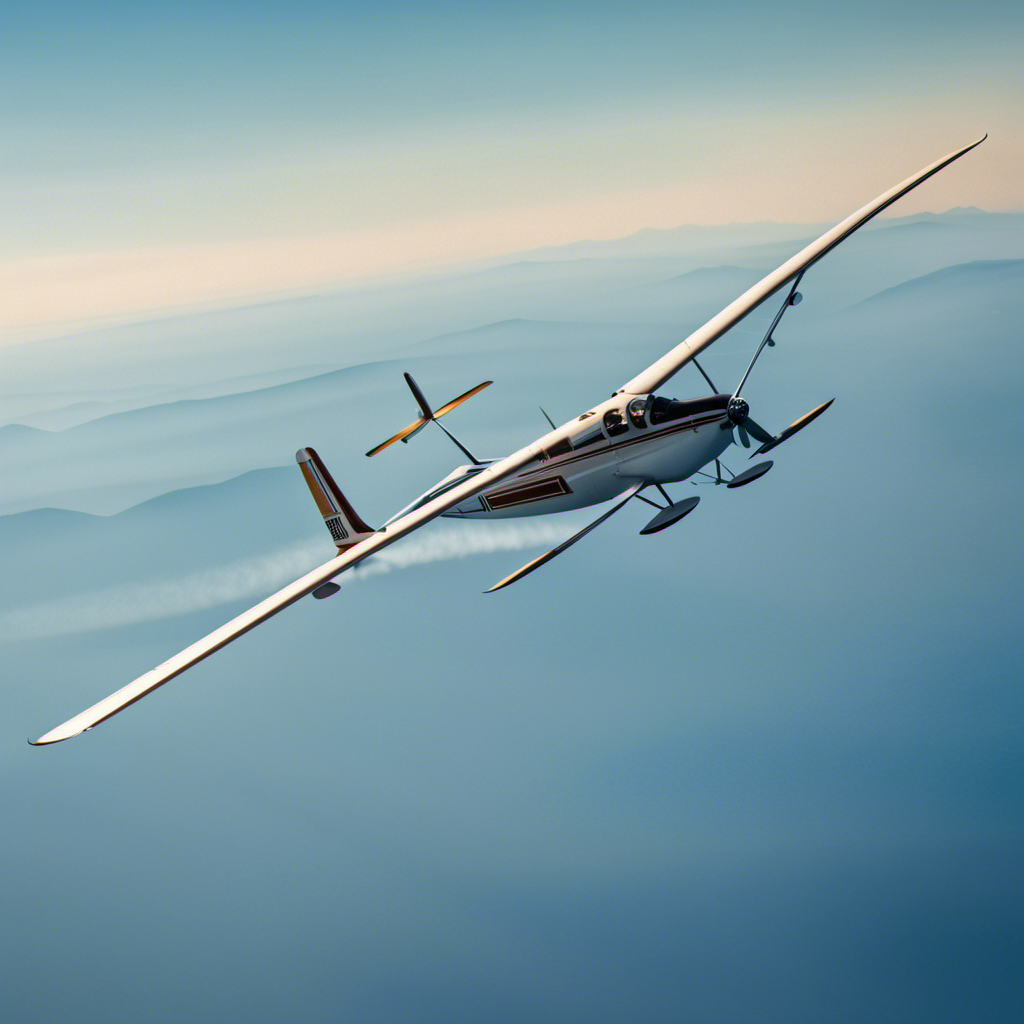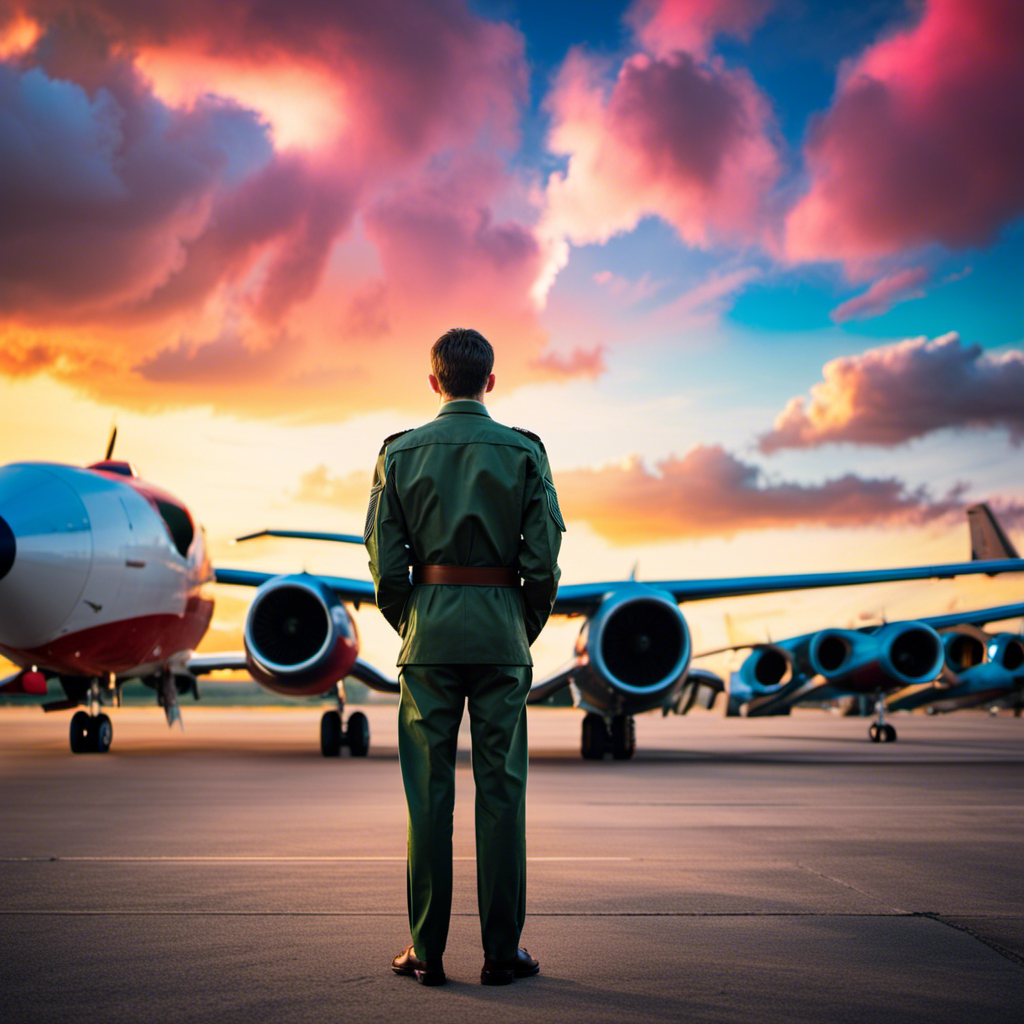Do pilots ever experience fatigue?
As a pilot myself, I can confidently say that fatigue is a very real and concerning issue in the aviation industry. The demanding nature of our profession, coupled with long hours and irregular schedules, can take a toll on our physical and mental well-being.
In this article, we will explore the impact of fatigue on pilot performance, the various factors contributing to pilot fatigue, and the regulations and guidelines in place to combat this issue.
Join me as we delve into the world of pilot fatigue and its implications on flight safety.
Key Takeaways
- Fatigue is a significant concern in the aviation industry and can impair a pilot’s ability to perform effectively and safely.
- Pilot self-care strategies, such as prioritizing physical and mental health, regular exercise, and practicing good sleep hygiene, can help manage fatigue.
- Proper rest and sleep are crucial for pilots to mitigate the negative impact of fatigue on performance, reduce the risk of fatigue-related incidents, and enhance flight safety.
- Continuous improvement and research in fatigue management, including staying up to date with advancements and focusing on sleep patterns and workload distribution, aim to minimize fatigue-related incidents and enhance overall flight safety.
The Impact of Fatigue on Pilot Performance
You might be wondering how fatigue can affect your performance as a pilot. Well, let me tell you, the impact of fatigue on a pilot’s performance is significant.
Not only does it affect their ability to make quick decisions and react to unexpected situations, but it also has long-term effects on their health. Fatigue can lead to decreased cognitive function, impaired judgment, and slower reaction times. It can also contribute to physical and mental health issues such as depression, anxiety, and cardiovascular problems.
As a pilot, it is crucial to understand the consequences of fatigue and take steps to mitigate its effects. Now that we understand the impact of fatigue, let’s explore the factors contributing to pilot fatigue.
Factors Contributing to Pilot Fatigue
One of the factors contributing to pilot fatigue is the long hours of continuous work. Pilots often have demanding schedules that require them to fly for extended periods of time without breaks. This can lead to a lack of sleep and rest, which is a significant factor influencing fatigue.
Additionally, the role of sleep deprivation cannot be underestimated. When pilots do not get enough sleep, their cognitive abilities, reaction times, and decision-making skills are all negatively affected. This can have serious implications for flight safety.
Other factors that can contribute to pilot fatigue include irregular work schedules, frequent time zone changes, and demanding physical and mental tasks. These factors all increase the risk of fatigue and can impair a pilot’s performance.
Transitioning into the subsequent section about regulations and guidelines to combat pilot fatigue, it is crucial to understand the importance of implementing effective measures to address this issue.
Regulations and Guidelines to Combat Pilot Fatigue
The implementation of regulations and guidelines is crucial in combating pilot fatigue. To ensure the safety of both pilots and passengers, regulatory bodies enforce strict rules regarding duty and rest time for pilots.
These regulations specify the maximum number of hours a pilot can fly in a given period and the minimum amount of rest required between flights. Additionally, pilot fatigue surveys play a significant role in shaping these regulations. By collecting data and feedback from pilots, regulatory bodies gain valuable insights into the factors that contribute to fatigue and can make informed decisions to address them.
However, regulations alone are not enough. The importance of adequate rest for pilots cannot be overstated. It is essential for pilots to prioritize their well-being and ensure they receive sufficient rest between flights to perform their duties safely and effectively.
The Importance of Adequate Rest for Pilots
Ensuring you get enough rest between flights is essential for maintaining your safety and effectiveness as a pilot. As a professional aviator, I understand the critical importance of adequate rest in preventing pilot fatigue. Here are three key reasons why rest is crucial for pilots:
-
Effects of Sleep Deprivation: Sleep deprivation can impair cognitive function, reaction time, and decision-making abilities. This can significantly compromise flight safety and jeopardize the lives of passengers and crew.
-
The Role of Circadian Rhythms: Our body’s internal clock, known as circadian rhythms, regulates our sleep-wake cycle. Disruptions to these rhythms, such as irregular shift schedules or crossing multiple time zones, can lead to fatigue and decreased performance.
-
Restorative Benefits: Sufficient rest allows our bodies to recover, replenishing energy levels and optimizing overall performance. Restorative sleep enhances concentration, alertness, and the ability to handle challenging situations in the cockpit.
Strategies for Managing and Preventing Pilot Fatigue
Managing and preventing pilot fatigue can be achieved through implementing effective strategies and maintaining a healthy work-life balance. As a pilot, I understand the importance of combatting fatigue to ensure the safety of myself, my crew, and passengers.
One strategy is to prioritize sleep and create a consistent sleep schedule, even during layovers. Additionally, taking short naps of 20-30 minutes can help alleviate fatigue. Another effective strategy is to engage in regular physical exercise and maintain a nutritious diet to promote overall well-being. Lastly, it is crucial to be aware of the role of sleep deprivation in contributing to fatigue and to prioritize obtaining adequate rest before and after flights.
By implementing these strategies, pilots can minimize the risk of fatigue-related incidents and ensure a safe and efficient operation.
Transitioning into the next section, technology and innovations in fatigue detection provide further tools to enhance safety in the aviation industry.
Technology and Innovations in Fatigue Detection
In order to effectively manage and prevent pilot fatigue, it is crucial to explore technological advancements that can aid in fatigue detection. Wearable technology has emerged as a promising solution in this regard. These devices are equipped with sensors and algorithms that can monitor various physiological and behavioral indicators, allowing for a real-time assessment of cognitive performance.
By analyzing data such as heart rate variability, sleep patterns, and eye movement, wearable technology can provide insights into a pilot’s level of fatigue. This information can be used to implement timely interventions, such as adjusting work schedules or providing rest breaks, to mitigate the risk of fatigue-related errors.
Some examples of wearable technology include:
- Smartwatches with sleep tracking capabilities
- Headsets that monitor brain activity
- Bioharnesses that measure heart rate variability
- Eyewear with eye movement tracking
- Smart clothing that detects changes in body temperature
By incorporating wearable technology into fatigue management strategies, pilots can proactively address their cognitive performance and ensure a safer aviation environment.
Now, let’s delve into the role of crew resource management in mitigating fatigue.
The Role of Crew Resource Management in Mitigating Fatigue
Crew Resource Management plays a crucial role in mitigating fatigue by fostering effective communication and teamwork among aviation personnel. The ability to communicate clearly and work together as a cohesive team is essential in managing fatigue and ensuring the safety of both the crew and passengers.
By implementing strategies such as standardized procedures, clear communication protocols, and shared decision-making, crew members can effectively support each other in recognizing and addressing signs of fatigue. This collaborative approach not only enhances crew communication and teamwork but also promotes a culture of safety and accountability within the aviation industry.
It is through these efforts that we can minimize the risks associated with fatigue and uphold the highest standards of safety in aviation. Moving forward, it is important to highlight the significance of pilot self-care and responsibility in fatigue management.
Pilot Self-Care and Responsibility in Fatigue Management
You can prioritize your well-being and take responsibility for managing fatigue by implementing self-care strategies. As a pilot, it’s crucial to maintain your physical and mental health to ensure optimal performance and safety.
Here are some self-care strategies that can help enhance pilot well-being and improve pilot performance evaluation:
- Stay physically active: Regular exercise can improve sleep quality, reduce stress, and increase overall energy levels.
- Practice good sleep hygiene: Establish a consistent sleep schedule and create a sleep-friendly environment to promote restful sleep.
- Engage in relaxation techniques: Techniques like deep breathing, meditation, and yoga can help reduce stress and promote relaxation.
- Maintain a healthy diet: Consuming nutritious foods can provide the necessary energy and nutrients for optimal performance.
- Seek social support: Maintain a strong support system and engage in activities that bring joy and fulfillment.
The Impact of Fatigue on Flight Safety
As a pilot, it is crucial for me to understand the impact of fatigue on flight safety. Fatigue can significantly impair a pilot’s ability to perform their duties effectively and safely. That is why fatigue monitoring and management are of utmost importance in the aviation industry.
Fatigue can result from a variety of factors, including sleep deprivation, irregular work schedules, and long duty hours. Sleep deprivation, in particular, has numerous detrimental effects on pilots, such as decreased alertness, impaired cognitive function, and slower reaction times. These effects can jeopardize flight safety and increase the risk of errors or accidents.
Therefore, it is essential for pilots to prioritize proper rest and sleep to mitigate the negative impact of fatigue on their performance.
Now, let’s delve into the continuous improvement and research in fatigue management for pilots, which plays a critical role in ensuring flight safety.
Continuous Improvement and Research in Fatigue Management for Pilots
To effectively manage fatigue, it’s important for pilots to stay up to date with the continuous improvements and research in fatigue management strategies. As technology advances and more data becomes available, researchers are constantly refining and enhancing fatigue management techniques to ensure the safety and well-being of pilots. Ongoing research focuses on various aspects such as sleep patterns, workload distribution, and circadian rhythm adjustments. This continuous improvement in fatigue management aims to minimize the risk of fatigue-related incidents and enhance overall flight safety. By staying informed and implementing the latest strategies, pilots can better mitigate the effects of fatigue and maintain optimal performance throughout their flights. The table below highlights some key areas of research and improvement in fatigue management for pilots:
| Research Area | Continuous Improvement Strategies | Benefits |
|---|---|---|
| Sleep patterns | Optimizing rest periods and schedules | Reduced fatigue and improved alertness |
| Workload distribution | Efficient task allocation and rotation | Balanced workload and reduced mental fatigue |
| Circadian rhythm adjustments | Adjusting schedules for different time zones | Minimized jet lag and improved sleep quality |
| Countermeasures | Implementing fatigue risk management systems | Enhanced safety and accident prevention |
| Technology integration | Utilizing fatigue monitoring devices | Early detection of fatigue and proactive intervention |
Frequently Asked Questions
What are the physical and psychological effects of pilot fatigue?
Pilot fatigue can have significant physical and psychological effects. Physically, it can impair cognitive function, reaction time, and decision-making abilities. Psychologically, it can lead to increased stress, anxiety, and decreased overall mental well-being.
How does sleep deprivation affect a pilot’s decision-making abilities?
Sleep deprivation significantly impairs a pilot’s decision-making abilities. It compromises cognitive functions such as attention, memory, and judgment. Reduced alertness and increased risk-taking behavior can lead to poor choices and errors in critical situations, jeopardizing flight safety.
Are there any specific regulations in place to limit the number of hours a pilot can fly in a day?
Yes, there are regulations in place to limit the number of hours a pilot can fly in a day. These regulations, known as pilot fatigue regulations, set specific pilot rest requirements to ensure safety and prevent exhaustion.
What measures can pilots take to ensure they get adequate rest between flights?
Pilots can ensure they get adequate rest between flights by following measures such as adhering to regulated rest periods, utilizing sleep aids if needed, and maintaining a balanced sleep schedule. Rest is crucial for pilot performance and safety.
Are there any emerging technologies or innovations that can help detect and prevent pilot fatigue?
Yes, emerging technologies are being developed to detect and prevent pilot fatigue. These include wearable devices that monitor vital signs, eye-tracking technology to detect drowsiness, and sophisticated software systems that analyze pilot performance and alertness levels.
Conclusion
In conclusion, it is undeniable that pilots do experience fatigue, and it can have a significant impact on their performance and flight safety. While regulations and guidelines exist to combat pilot fatigue, it is ultimately the responsibility of pilots themselves to prioritize their rest and well-being.
By implementing strategies for managing and preventing fatigue, such as adequate sleep and utilizing crew resource management techniques, pilots can ensure they are at their best when operating an aircraft.
Continuous improvement and research in fatigue management are crucial in maintaining the highest level of safety in aviation. While some may argue that pilot fatigue is inevitable, it is important to recognize the efforts being made to mitigate its effects and prioritize the well-being of those responsible for our skies.
Orion, better known as “Jetstream,” is the voice that brings the stories of the skies to life. His fascination with aviation began at a young age, sparked by his father’s tales of flying and adventure. Orion’s journey into the world of gliding was serendipitous, and from the moment he took his first glider flight, he knew he had found his calling.










